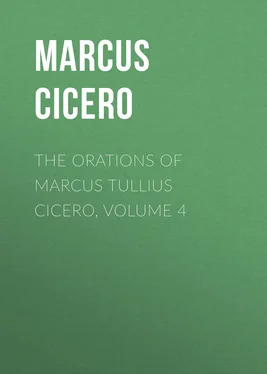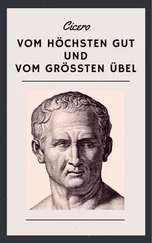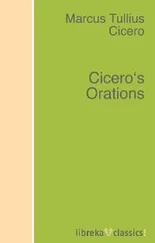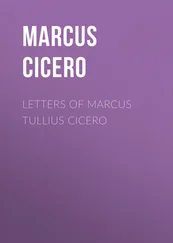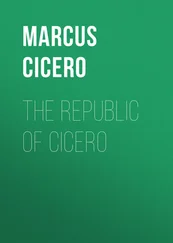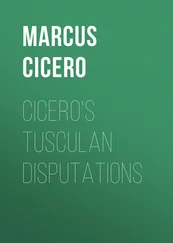Marcus Cicero - The Orations of Marcus Tullius Cicero, Volume 4
Здесь есть возможность читать онлайн «Marcus Cicero - The Orations of Marcus Tullius Cicero, Volume 4» — ознакомительный отрывок электронной книги совершенно бесплатно, а после прочтения отрывка купить полную версию. В некоторых случаях можно слушать аудио, скачать через торрент в формате fb2 и присутствует краткое содержание. Жанр: foreign_antique, Философия, foreign_edu, на английском языке. Описание произведения, (предисловие) а так же отзывы посетителей доступны на портале библиотеки ЛибКат.
- Название:The Orations of Marcus Tullius Cicero, Volume 4
- Автор:
- Жанр:
- Год:неизвестен
- ISBN:нет данных
- Рейтинг книги:3 / 5. Голосов: 1
-
Избранное:Добавить в избранное
- Отзывы:
-
Ваша оценка:
- 60
- 1
- 2
- 3
- 4
- 5
The Orations of Marcus Tullius Cicero, Volume 4: краткое содержание, описание и аннотация
Предлагаем к чтению аннотацию, описание, краткое содержание или предисловие (зависит от того, что написал сам автор книги «The Orations of Marcus Tullius Cicero, Volume 4»). Если вы не нашли необходимую информацию о книге — напишите в комментариях, мы постараемся отыскать её.
The Orations of Marcus Tullius Cicero, Volume 4 — читать онлайн ознакомительный отрывок
Ниже представлен текст книги, разбитый по страницам. Система сохранения места последней прочитанной страницы, позволяет с удобством читать онлайн бесплатно книгу «The Orations of Marcus Tullius Cicero, Volume 4», без необходимости каждый раз заново искать на чём Вы остановились. Поставьте закладку, и сможете в любой момент перейти на страницу, на которой закончили чтение.
Интервал:
Закладка:
But the principles of his son are widely different; who is not only beloved by every one, but in the greatest degree by the most virtuous men. In him is placed all our hope of liberty, from him already has our safety been received, for him the highest honours are sought out and prepared. While therefore we are admiring his singular prudence, can we at the same time fear his folly? For what can be more foolish than to prefer useless power, such influence as brings envy in its train, and a rash and slippery ambition of reigning, to real, dignified, solid glory? Has he seen this truth as a boy, and when he has advanced in age will he cease to see it? "But he is an enemy to some most illustrious and excellent citizens." That circumstance ought not to cause any fear Caesar has sacrificed all those enmities to the republic; he had made the republic his judge; he has made her the directress of all his counsels and actions. For he is come to the service of the republic in order to strengthen her, not to overturn her. I am well acquainted with all the feelings of the young man: there is nothing dearer to him than the republic, nothing which he considers of more weight than your authority; nothing which he desires more than the approbation of virtuous men; nothing which he accounts sweeter than genuine glory.
Wherefore you not only ought not to fear anything from him, but you ought to expect greater and better things still. Nor ought you to apprehend with respect to a man who has already gone forward to release Decimus Brutus from a siege, that the recollection of his domestic injury will dwell in his bosom, and have more weight with him than the safety of the city. I will venture even to pledge my own faith, O conscript fathers, to you, and to the Roman people, and to the republic, which in truth, if no necessity compelled me to do so, I would not venture to do, and in doing which on slight grounds, I should be afraid of giving rise to a dangerous opinion of my rashness in a most important business; but I do promise, and pledge myself, and undertake, O conscript fathers, that Caius Caesar will always be such a citizen as he is this day, and as we ought above all things to wish and desire that he may turn out.
XIX. And as this is the case, I shall consider that I have said enough at present about Caesar.
Nor do I think that we ought to pass over Lucius Egnatuleius, a most gallant and wise and firm citizen, and one thoroughly attached to the republic, in silence; but that we ought to give him our testimony to his admirable virtue, because it was he who led the fourth legion to Caesar, to be a protection to the consuls, and senate, and people of Rome, and the republic. And for these acts I give my vote:
"That it be made lawful for Lucius Egnatuleius to stand for, and be elected to, and discharge the duties of any magistracy, three years before the legitimate time."
And by this motion, O conscript fathers, Lucius Egnatuleius does not get so much actual advantage as honour. For in a case like this it is quite sufficient to be honourably mentioned.
But concerning the army of Caius Caesar, I give my vote for the passing of a decree in this form:
"The senate decrees that the veteran soldiers who have defended and are defending [lacuna] of Caesar, pontiff [lacuna] and the authority of this order, should, and their children after them, have an exemption from military service. And that Caius Pansa and Aulus Hirtius the consuls, one or both of them, as they think fit, shall inquire what land there is in those colonies in which the veteran soldiers have been settled, which is occupied in defiance of the provisions of the Julian law, in order that that may be divided among these veterans. That they shall institute a separate inquiry about the Campanian district, and devise a plan for increasing the advantages enjoyed by these veteran soldiers; and with respect to the Martial legion, and to the fourth legion, and to those soldiers of the second and thirty-fifth legions who have come over to Caius Pansa and Aulus Hirtius the consuls, and have given in their names, because the authority of the senate and the liberty of the Roman people is and always has been most dear to them, the senate decrees that they and their children shall have exemption from military service, except in the case of any Gallic and Italian sedition; and decrees further, that those legions shall have their discharge when this war is terminated; and that whatever sum of money Caius Caesar, pontiff and propraetor, has promised to the soldiers of those legions individually, shall be paid to them. And that Caius Pansa and Aulus Hirtius the consuls, one or both of them, as it seems good to them, shall make an estimate of the land which can be distributed without injury to private individuals; and that land shall be given and assigned to the soldiers of the Martial legion and of the fourth legion, in the largest shares in which land has ever been given and assigned to soldiers."
I have now spoken, O consuls, on every point concerning which you have submitted a motion to us; and if the resolutions which I have proposed be decreed without delay, and seasonably, you will the more easily prepare those measures which the present time and emergency demand. But instant action is necessary. And if we had adopted that earlier, we should, as I have often said, now have no war at all.
THE SIXTH ORATION OF M. T CICERO AGAINST MARCUS ANTONIUS CALLED ALSO THE SIXTH PHILIPPIC. ADDRESSED TO THE PEOPLE
In respect of the honours proposed by Cicero in the last speech the senate agreed with him, voting to Octavius honours beyond any that Cicero had proposed. But they were much divided about the question of sending an embassy to Antonius, and the consuls, seeing that a majority agreed with Cicero, adjourned the debate till the next day. The discussion lasted three days, and the senate would at last have adopted all Cicero's measures if one of the tribunes, Salvius, had not put his veto on them. So that at last the embassy was ordered to be sent, and Servius Sulpicius, Lucius Piso, and Lucius Philippus, appointed as the ambassadors, but they were charged merely to order Antonius to abandon the siege of Mutina, and to desist from hostilities against the province of Gaul, and further, to proceed to Decimus Brutus in Mutina, and to give him and his army the thanks of the senate and people.
The length of the debates roused the curiosity of the people, who, being assembled in the forum to learn the result, called on Cicero to come forth and give them an account of what had been done—on which he went to the rostra, accompanied by Publius Appuleius the tribune, and related to them all that had passed in the following speech:
I. I imagine that you have heard, O Romans, what has been done in the senate, and what has been the opinion delivered by each individual. For the matter which has been in discussion ever since the first of January, has been just brought to a conclusion, with less severity indeed than it ought to have been, but still in a manner not altogether unbecoming. The war has been subjected to a delay, but the cause has not been removed. Wherefore, as to the question which Publius Appuleius—a man united to me by many kind offices and by the closest intimacy, and firmly attached to your interests—has asked me, I will answer in such a manner that you may be acquainted with the transactions at which you were not present.
The cause which prompted our most fearless and excellent consuls to submit a motion on the first of January, concerning the general state of the republic, arose from the decree which the senate passed by my advice on the nineteenth of December. On that day, O Romans, were the foundations of the republic first laid. For then, after a long interval, the senate was free in such a manner that you too might become free. On which day, indeed,—even if it had been to bring to me the end of my life,—I received a sufficient reward for my exertions, when you all with one heart and one voice cried out together, that the republic had been a second time saved by me. Stimulated by so important and so splendid a decision of yours in my favour, I came into the senate on the first of January, with the feeling that I was bound to show my recollection of the character which you had imposed upon me, and which I had to sustain.
Читать дальшеИнтервал:
Закладка:
Похожие книги на «The Orations of Marcus Tullius Cicero, Volume 4»
Представляем Вашему вниманию похожие книги на «The Orations of Marcus Tullius Cicero, Volume 4» списком для выбора. Мы отобрали схожую по названию и смыслу литературу в надежде предоставить читателям больше вариантов отыскать новые, интересные, ещё непрочитанные произведения.
Обсуждение, отзывы о книге «The Orations of Marcus Tullius Cicero, Volume 4» и просто собственные мнения читателей. Оставьте ваши комментарии, напишите, что Вы думаете о произведении, его смысле или главных героях. Укажите что конкретно понравилось, а что нет, и почему Вы так считаете.
